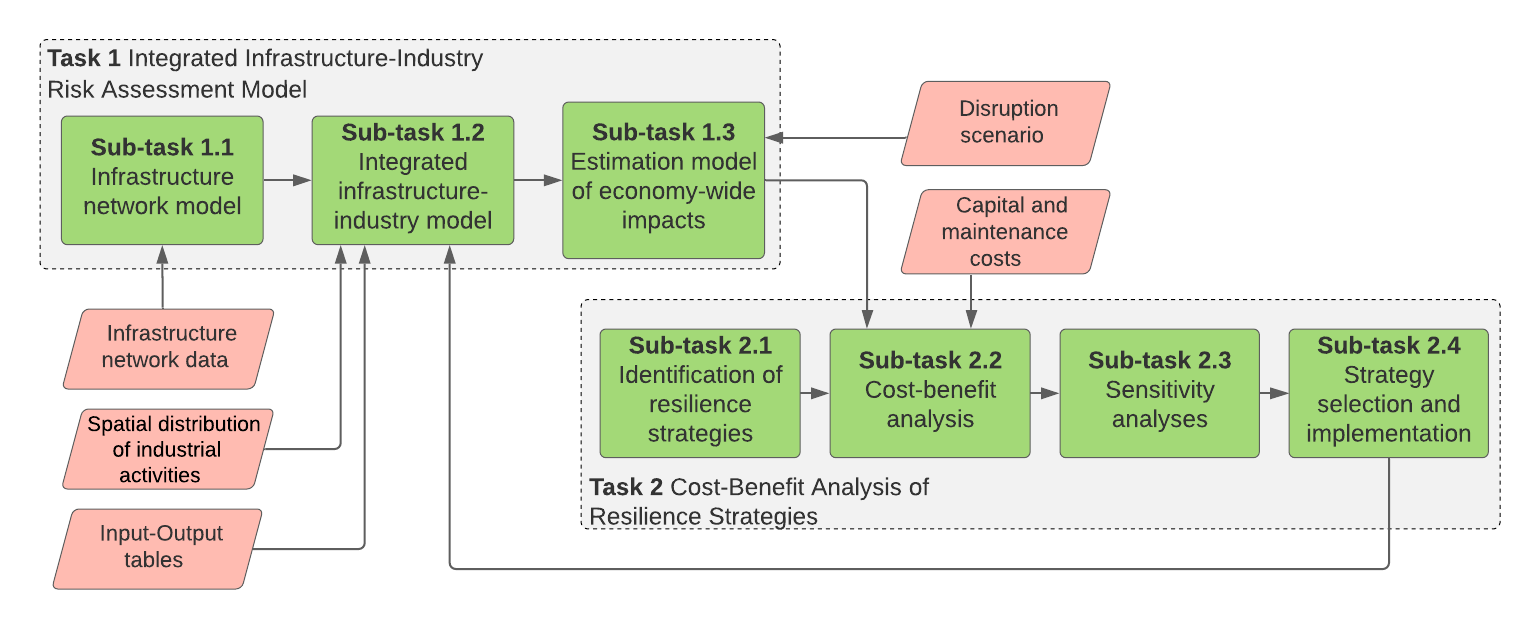Estimating Economic Losses from Cascading Infrastructure Disruptions
E2LCID project will develop a quantitative framework and tools to evaluate resilience strategies for critical infrastructure networks in reducing potential economic risks.

Climate-induced extreme weather events and emerging threats, such as cyber attacks and acts of terrorism, pose severe risks to the uninterrupted functioning of critical infrastructure networks. Infrastructure services such as power, water, and transport, are crucial to most industrial sectors and therefore, any disruption to the former could adversely affect all dependent industrial activities.
An example of these concerns is the recent 2021 Texas snowstorm, which caused power blackouts and water supply disruptions in the industrial hub of Central Texas, leading to ripple effects in the national and global semiconductor supply-chains. To address the above concerns, this project will investigate the relationship between infrastructure disruptions and their consequences on industrial and economic output.
Specifically, we will first build a model to simulate how disruptions originating in infrastructure affect the dependent industrial activities (Task 1 in Figure 1). We will then evaluate the consequent economic losses for different disruption scenarios and recovery strategies using Cost-Benefit Analysis (Task 2 in Figure 1). These results will then be used to compare the capabilities of different strategies to minimise the expected economic losses.
Overall, the project aims to provide a new economic perspective on the theme of infrastructure resilience and will help decision-makers and stakeholders test and evaluate the effectiveness of resilience strategies against various disaster scenarios. This will further minimise the impacts of infrastructure failures on a country’s economy.

